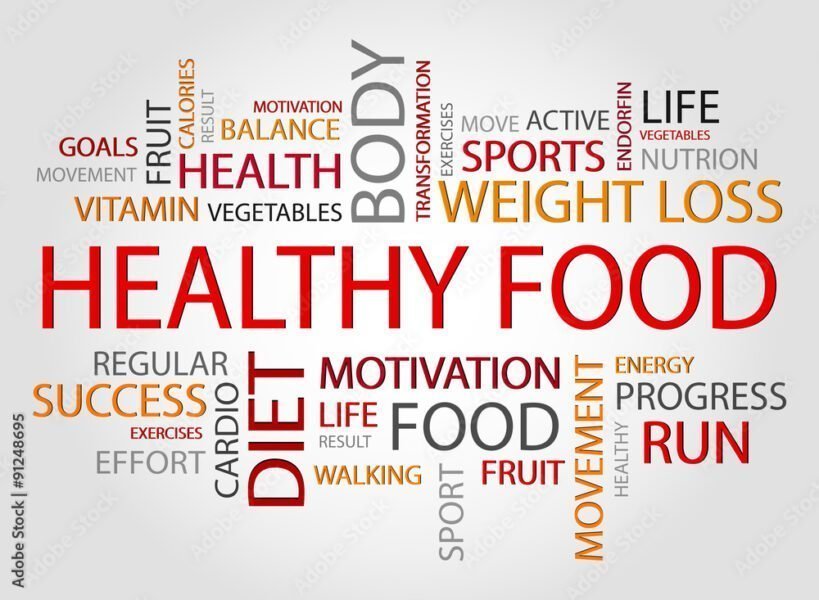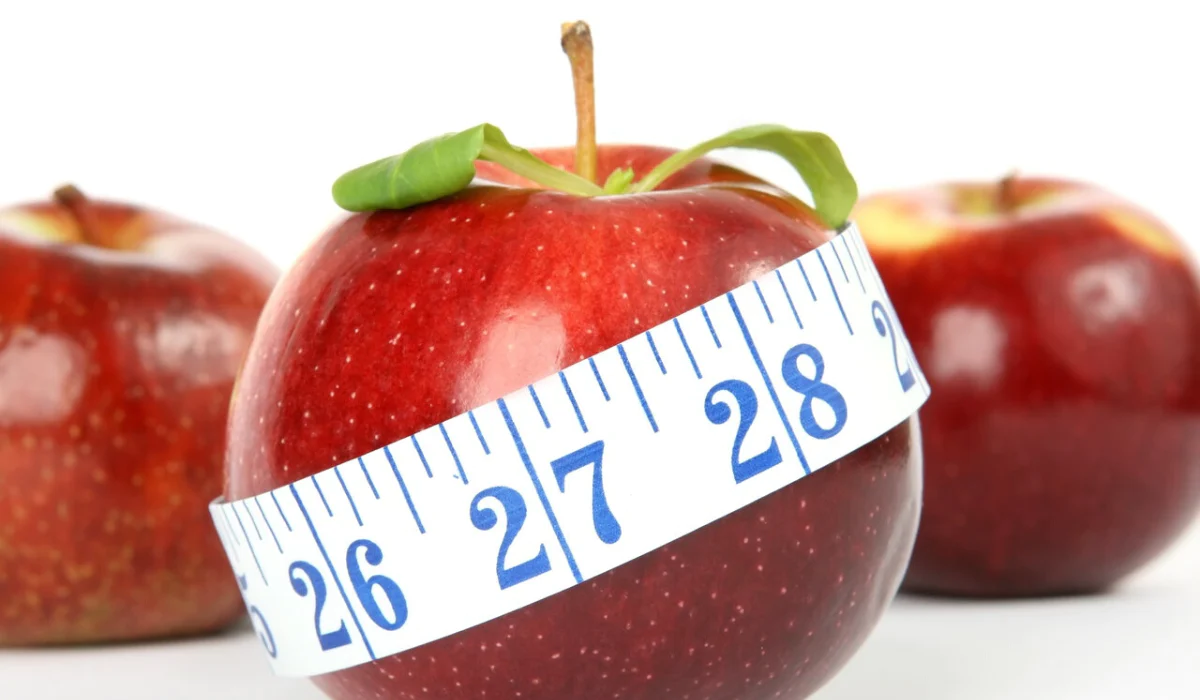What are the benefits of eating a healthy diet? What are some common misconceptions about healthy eating? 3 Tips
In the quest for better health and fitness, achieving a balanced diet is a fundamental step. A healthy diet provides the necessary nutrients, vitamins, and minerals for our body to function optimally. It plays a vital role in supporting weight management, preventing chronic diseases, and improving mental well-being. In this article, we will explore the questions you may have about achieving health and fitness through a healthy diet.
Why is a healthy diet important for achieving health and fitness?
A healthy diet is the foundation for overall well-being. It supplies the body with essential nutrients that are required for various physiological processes. When we nourish our bodies with a balanced diet, we enhance our energy levels, support the immune system, and promote healthy organ function. Additionally, a healthy diet contributes to weight management, prevents chronic diseases, and boosts mental clarity.

What are the key components of a healthy diet?
A healthy diet consists of several key components that work together to promote optimal health. These include macronutrients, micronutrients, fiber, and water.
Read More: 1. Discover The Importance Of A Healthy Diet And Exercise In Your Life
2. How to Stay healthy, be happy live Longer?
Macronutrients: Carbohydrates, proteins, and fats
Macronutrients are the major sources of energy for the body. Carbohydrates provide fuel for physical activity, proteins build and repair tissues, and fats are essential for hormone production and nutrient absorption. A balanced diet should include a variety of these macronutrients in appropriate proportions.
Micronutrients: Vitamins and minerals
Micronutrients are essential for the proper functioning of our bodies. They include vitamins and minerals, which play a crucial role in supporting various processes such as metabolism, immune function, and cell growth. Consuming a diverse range of fruits, vegetables, whole grains, and lean proteins ensures an adequate intake of these micronutrients.
Fiber and water intake
Fiber is an important component of a healthy diet as it aids in digestion, regulates blood sugar levels, and promotes satiety. It can be found in whole grains, fruits, vegetables, and legumes. Similarly, staying hydrated by drinking an adequate amount of water throughout the day is essential for maintaining overall health and well-being.

How can a healthy diet support weight management?
Maintaining a healthy weight is crucial for overall health and reducing the risk of chronic diseases. A healthy diet plays a significant role in supporting weight management.
Balancing Energy Intake and Expenditure
To achieve weight management, it is important to strike a balance between the calories consumed and the calories burned through physical activity. Consuming a healthy diet helps in managing calorie intake while providing the necessary nutrients for the body’s needs.
Importance of portion control
Portion control is key when it comes to maintaining a healthy weight. By being mindful of portion sizes and practicing portion control, it becomes easier to manage calorie intake and prevent overeating.
Understanding macronutrient ratios for weight loss or gain
The distribution of macronutrients in your diet can impact weight loss or gain. Different ratios of carbohydrates, proteins, and fats can be followed based on individual goals and preferences. For example, a higher protein intake may be beneficial for those aiming to build muscle, while a moderate carbohydrate intake may be suitable for weight loss.
Can a healthy diet prevent chronic diseases?
Yes, a healthy diet can play a crucial role in preventing chronic diseases and promoting long-term health.
Role of antioxidants and Phytochemicals
A healthy diet rich in fruits, vegetables, and whole grains provides an abundance of antioxidants and phytochemicals. These compounds help protect the body against cellular damage caused by free radicals and reduce the risk of chronic diseases such as cancer, heart disease, and age-related macular degeneration.
Impact of a balanced diet on heart health
A healthy diet low in saturated fats, trans fats, and cholesterol can help lower the risk of heart disease. It is important to focus on consuming foods that are rich in unsaturated fats, such as avocados, nuts, and olive oil. Additionally, incorporating foods high in omega-3 fatty acids, like fatty fish, can contribute to heart health.
The link between diet and diabetes prevention
Maintaining a healthy diet is crucial in preventing and managing diabetes. A balanced diet that includes whole grains, lean proteins, and plenty of vegetables and fruits can help regulate blood sugar levels and reduce the risk of developing type 2 diabetes.
Is it necessary to follow a specific diet plan?
While there are numerous diet plans available, it is not necessary to follow a specific one to achieve a healthy diet. It’s important to understand that each person has unique nutritional needs and preferences.
Overview of popular diet plans (e.g., Mediterranean, Paleo, Keto)
Several popular diet plans exist, each with its own principles and guidelines. The Mediterranean diet emphasizes whole foods, lean proteins, healthy fats, and moderate consumption of red wine. The Paleo diet focuses on consuming foods similar to those available to our hunter-gatherer ancestors, such as lean meats, fruits, vegetables, nuts, and seeds. The Keto diet is a low-carbohydrate, high-fat diet that aims to achieve ketosis, a metabolic state where the body uses fat as its primary fuel source.
Customizing a diet plan based on individual needs and preferences
Instead of strictly adhering to a specific diet plan, it is often more effective to customize a diet based on individual needs and preferences. This involves understanding personal dietary requirements, considering any food intolerances or allergies, and tailoring the diet to meet specific health goals.
Working with a registered dietitian or nutritionist can be helpful in creating a personalized meal plan that takes into account individual factors such as age, gender, activity level, and underlying health conditions.

What are some common misconceptions about healthy eating?
There are several misconceptions surrounding healthy eating that can lead to confusion. Let’s address a few of them:
Myth: Carbohydrates are bad for you
Carbohydrates often get a bad reputation, but the truth is that they are an essential part of a healthy diet. It’s important to differentiate between simple carbohydrates found in refined sugars and complex carbohydrates found in whole grains, fruits, and vegetables. Complex carbohydrates provide important nutrients and fiber necessary for good health.
Myth: Fat-free foods are always healthy
While it’s true that excessive consumption of unhealthy fats can be detrimental to health, it’s important to understand that not all fats are bad. Healthy fats, such as those found in avocados, nuts, and olive oil, are essential for the body and should be included in a balanced diet.
Myth: Skipping meals leads to weight loss
Skipping meals may seem like an effective way to reduce calorie intake, but it can actually have negative effects on metabolism and overall health. Regular meals and snacks throughout the day help maintain stable blood sugar levels and provide sustained energy.

How can a healthy diet improve mental well-being?
The connection between diet and mental well-being is gaining recognition. A healthy diet can have a positive impact on mental health in several ways.
The gut-brain connection
The gut-brain axis, a bidirectional communication network between the gut and the brain, plays a crucial role in mental health. A healthy diet that includes probiotics and prebiotics can support a healthy gut microbiome, positively influencing mood and cognitive function.
Foods that support brain health
Certain foods have been found to support brain health and cognitive function. These include fatty fish rich in omega-3 fatty acids, blueberries and other berries high in antioxidants, leafy greens abundant in vitamins and minerals, and nuts and seeds packed with brain-boosting nutrients.
Impact of a balanced diet on Mood and cognition
A diet rich in nutrients supports brain health and can positively impact mood and cognition. Nutrient deficiencies, on the other hand, can contribute to symptoms of depression and anxiety. A balanced diet ensures an adequate supply of essential nutrients, promoting mental well-being.
Tips for maintaining a healthy diet in a busy lifestyle
Maintaining a healthy diet can be challenging, especially in a busy lifestyle. Here are some tips to help incorporate healthy eating habits:
Meal planning and preparation
Plan your meals in advance to ensure a well-balanced diet. Set aside time for grocery shopping and meal preparation to make healthy choices more convenient. Batch cooking and preparing meals in advance can save time during busy weekdays.
Healthy snacking options
Keep a variety of healthy snacks readily available to avoid reaching for unhealthy options. Opt for fresh fruits, vegetables with hummus, Greek yogurt, nuts, or homemade granola bars as nutritious alternatives.
Eating out smartly
When dining out, make smart choices by opting for grilled or baked dishes, choosing salads or vegetables as sides, and being mindful of portion sizes. Ask for dressings and sauces on the side to control the amount consumed.
Conclusion
Achieving health and fitness through a healthy diet is a journey that involves understanding the importance of balanced nutrition, debunking common misconceptions, and customizing a diet based on individual needs and preferences. A healthy diet supports weight management, prevents chronic diseases, improves mental well-being, and provides the necessary nutrients for overall health.
By focusing on key components:
By focusing on key components such as macronutrients, micronutrients, fiber, and water intake, individuals can ensure they are nourishing their bodies with the essential building blocks for optimal functioning. Understanding the role of a healthy diet in weight management, including balancing energy intake and expenditure, practicing portion control, and considering macronutrient ratios, can support individuals in achieving their weight goals.
A healthy diet has a significant impact on preventing chronic diseases
Moreover, a healthy diet has a significant impact on preventing chronic diseases, such as heart disease and diabetes. Antioxidants, phytochemicals, and a well-balanced diet contribute to reducing the risk of these conditions. Customizing a diet plan based on individual needs and preferences ensures sustainability and enjoyment in the journey toward better health.
Addressing common misconceptions about healthy eating
Addressing common misconceptions about healthy eating, such as the demonization of carbohydrates and the belief that fat-free foods are always healthy, helps individuals make informed choices. By busting these myths, people can embrace a more inclusive and balanced approach to nutrition.
The impact of a healthy diet on mental well-being should not be overlooked
Furthermore, the impact of a healthy diet on mental well-being should not be overlooked. The gut-brain connection highlights the importance of a healthy gut microbiome for mood and cognitive function. Including brain-boosting foods and ensuring nutrient adequacy supports mental well-being.
Tips for maintaining a healthy diet in a busy lifestyle provide practical strategies for incorporating healthy eating habits.
Finally, tips for maintaining a healthy diet in a busy lifestyle provide practical strategies for incorporating healthy eating habits. Meal planning and preparation, choosing healthy snacks, and making mindful choices when eating out help individuals navigate busy schedules while prioritizing their health.
In conclusion
Achieving health and fitness through a healthy diet is a holistic approach that encompasses various aspects of nutrition and well-being. By understanding the importance of balanced nutrition, debunking misconceptions, and adopting practical strategies, individuals can embark on a journey toward optimal health and vitality.

FAQs (Frequently Asked Questions)
1. Can I achieve weight loss by only focusing on diet?
While diet plays a significant role in weight management, incorporating physical activity is crucial for sustainable weight loss. A combination of a healthy diet and regular exercise yields the best results.
2. Is it okay to have cheat meals occasionally?
Occasional indulgences can be a part of a healthy diet as long as they are balanced with overall healthy eating habits. Moderation is key, and it’s important to get back on track with healthy choices afterward.
3. How can I incorporate more fruits and vegetables into my diet?
Start by gradually increasing your intake of fruits and vegetables. Add them to your meals, incorporate them into smoothies, or enjoy them as snacks. Experiment with different recipes and flavors to find what you enjoy.
4. Can a healthy diet improve my skin’s appearance?
Yes, a healthy diet can contribute to better skin health. Nutrient-rich foods provide essential vitamins and minerals that support skin health and may help improve its appearance.
5. Is it necessary to count calories to maintain a healthy diet?
Counting calories is not necessary for everyone. A focus on consuming whole, unprocessed foods and practicing portion control can be sufficient for maintaining a healthy diet. Listening to your body’s hunger and fullness cues can also be helpful in maintaining a balanced approach to eating.
Remember, for more information and resources on achieving optimal health and fitness, Visit: optimalhealth. in.
https://www.healthline.com/nutrition/biggest-lies-of-nutrition
https://www.alittlenutrition.com/5-common-misconceptions-about-healthy-eating/
https://www.niddk.nih.gov/health-information/weight-management/myths-nutrition-physical-activity


Comments are closed.